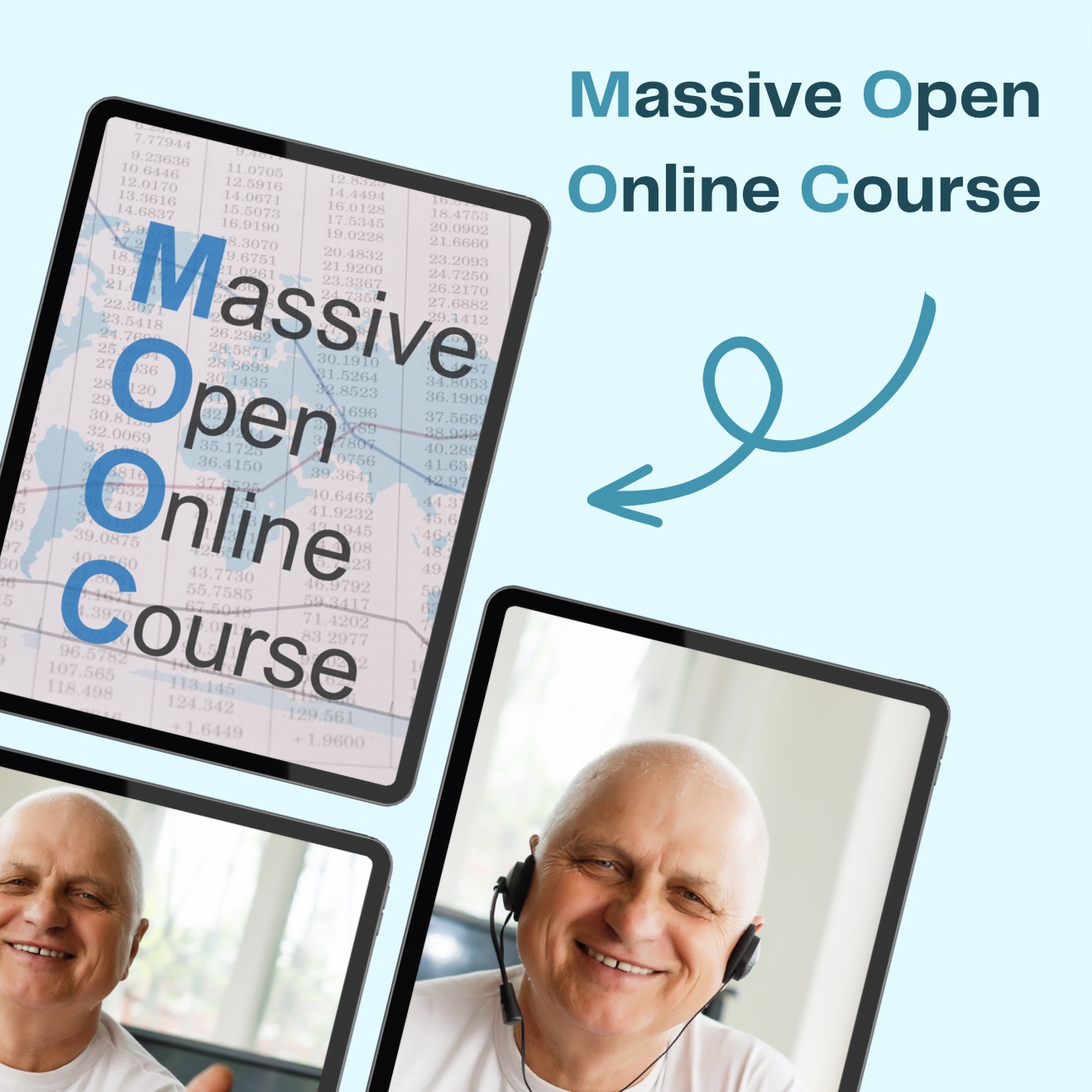

Hello, dear teacher and trainer friends, and everyone else. For the past few weeks, the lockdown has given me the opportunity to delve into Edtech readings. Today, I'm sharing with you what I've discovered about MOOCs, particularly those in France; it might interest you.
Over the past 2 years, France has gradually caught up with MOOC production. We can now count a little over one MOOC* being produced every day, and this trend is accelerating as the number of enrollees grows (1,600,000 enrollees on the publicly funded and non-profit FUN platform, which is the reference platform).
We won't go so far as to talk about a pedagogical revolution, of course, but rather a profound transformation driven by new technologies in the transmission of knowledge.
First and foremost, we can consider that the pure essence of a MOOC is access to knowledge for everyone, everywhere. A noble idea, but...
Things are a bit more complex than they appear.
In reality, they wear multiple hats: they serve as a showcase for higher education institutions to increase their international audience, a recruitment tool for companies, and much more!
Studies have shown that MOOCs truly become "interesting" to users when integrated into a diploma or certification program. Access to knowledge is good, but obtaining recognition at the end of the journey is even better.
Higher education groups and businesses have realized the value of this:
The Ionis Group and Openclassrooms offer fully online training paths that already confer state diplomas.
On the corporate side, nearly 200 certifying MOOCs are now being taken by employees as part of their professional development or to complement existing training.
After addressing the incentive for the public to engage with digital learning from larger organizations, let's now focus on the success conditions for a smaller-scale MOOC.
To attempt to answer this question, I'll draw on what I've read and my background as an adult educator.
Have a "winning" topic (yes, really!) that you master perfectly and have already tested in person with an audience. If you want to garner a following (much like a renowned YouTuber), you need to be confident in what you're offering right from the first attempt to encourage your audience to return next time.
However, mistakes are human... So don't hesitate to try out and experiment with new pedagogical techniques. Despite MOOCs being discussed for years, they remain relatively new. There are no right or wrong practices. Innovation is key, as is creativity. Don't hold back! At best, you're experimenting. At worst... good news, there's no "worst."
Prepare your pedagogical progression in advance. This might be obvious, but the "new" can be disruptive. Knowing exactly where you're headed is crucial. It will also give you the opportunity to be precise and concise in the knowledge you want to impart and sift through what's essential in your progression. The recommended time for a MOOC is 10-15 minutes. Beyond that, you'll likely lose your audience easily.
Society is becoming digital, but human interaction remains paramount. Don't think that a MOOC alone suffices. You are first and foremost an educator. What sets you apart from an ordinary person are your teaching qualities. Don't lose this essence. Through the camera, it's impossible to "feel" if a concept is understood. It's essential to keep in touch with your learners and interact with them, whether on Zoom or through a dedicated messaging platform, for example. This way, you can receive their feedback, address their questions, and even create a "MOOC SOS" if necessary.
Don't go it alone. Surround yourself with your pedagogical team, people who share the same desire to create digital learning. Share your challenges, exchange ideas about content, and find mutual solutions. You'll also need autonomy and freedom; it's up to your hierarchy to be supportive and let go of a formal checklist.
Last point... Find the technical equipment that suits you best. Even if you're comfortable with new technologies, don't underestimate them. They can pose a real obstacle to video production. (No, I'm not encouraging you to visit our website: www.kalyzee.com, especially our article that guides you in building a live streaming studio).
Need a concrete example? We've dissected a French MOOC for you: the Gobelins School's MOOC.
France adopted MOOCs relatively late, unlike the US, which is the most productive and pioneering in this field. This could be explained by their radically different financing model, as well as the challenge for French organizations to integrate them effectively into a training path.
Even though creating a MOOC might initially seem colossal, it just requires a bit of anticipation and rehearsal. One thing is certain: an improvised MOOC is a failed MOOC! The ball is now in your court to make a difference and, this time, revolutionize education.
*Numbers taken from fun-mooc.fr


